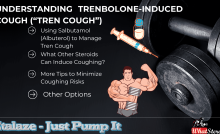Essential Techniques to Master Squats Form


Squats are a fundamental exercises, targeting multiple muscle groups like quads, hamstrings, and glutes. They promote overall lower body strength, enhance stability, and stimulate growth hormones for muscle development. Proper form is crucial to maximize benefits and minimize injury risk.
Must Read: Workout On Steroids Routine for Pros and Newbies
Understanding Squats and Benefits
Proper Foot Placement
Set your feet shoulder-width apart, toes pointing slightly outward to ensure stability and balance.
Straight Back
Maintain a neutral spine throughout the movement, avoiding rounding or arching. Engage your core to support your back.
Depth Control
Aim for a parallel or slightly below parallel squat to engage muscles effectively without compromising knee health.
Knee Alignment
Keep your knees in line with your toes; don't let them collapse inward. This helps prevent injuries and ensures proper muscle engagement.
Hips Back and Down
Initiate the movement by pushing your hips back before bending your knees. This helps activate your glutes and hamstrings.
Chest Up
Keep your chest lifted throughout the squat. This promotes better posture and prevents leaning forward.
Balance and Control
Maintain control over the descent and ascent of the squat. Avoid sudden movements or jerks to reduce the risk of injury.
Breathing Technique
Inhale as you lower, and exhale as you push back up. This helps stabilize your core and provides additional support.
Warm-Up
Prioritize a proper warm-up to prepare your muscles and joints for the squatting movements, reducing the risk of injury.
Consistent Practice
Regularly incorporate squats into your workout routine to improve form, strength, and flexibility over time.
Mastering Barbell Squats
Barbell squats are a foundational exercise for bodybuilders, targeting multiple muscle groups. Ensure proper form: feet shoulder-width apart, chest up, and knees tracking over toes. Start with an empty barbell to warm up and progressively add weight. Aim for a full range of motion, lowering until your thighs are parallel to the ground. Incorporate variations like front squats or pause squats for added challenge. Consistency, proper technique, and gradual progression are key for building strength and muscle mass with barbell squats. Always prioritize safety and listen to your body.
Related Article: The Ultimate Guide to Safe Steroid Injection
What Not to Do
A bodybuilder should avoid rounding the lower back, going too heavy without proper form, neglecting warm-up sets, and rushing through the movement. Consistent technique and controlled execution are crucial for safe and effective squats.
Not Doing Proper Warm-Up
Always warm up to prepare your muscles and joints for the squatting motion.
Don't Sacrifice Form for Weight
Maintain proper technique even when increasing the load; prioritize good form over lifting heavier.
Rounding Your Lower Back
Keep your spine neutral to avoid unnecessary stress on the lower back; engage your core throughout the movement.
Rushing Through Reps
Perform squats with controlled, deliberate movements; avoid bouncing at the bottom, as it can strain your joints.
Neglecting Full Range of Motion
Ensure you squat to an appropriate depth, breaking parallel, to engage the muscles fully and prevent potential imbalances.
Neglecting Safety Equipment
Use a squat rack and, if necessary, a spotter to ensure safety during heavy lifts.
Skipping Cooldown Stretches
After squats, perform appropriate stretches to help prevent muscle tightness and improve flexibility.
Overtraining
Allow sufficient recovery time between squat sessions to prevent overuse injuries and promote muscle recovery.
Ignoring Discomfort or Pain
If you experience pain during squats, address the issue rather than pushing through; consult with a fitness professional or healthcare provider if needed.
Not Going for Variety
Include different squat variations in your routine to target various muscle groups and prevent monotony in your training.
Overall
Performing squats with proper form is essential to prevent injuries and maximize benefits. Correct technique ensures proper muscle engagement, reducing the risk of strains or imbalances. It also protects the lower back and knees, common areas prone to injury during squats. Proper form ensures the targeted muscles bear the load, enhancing the effectiveness of the exercise for muscle development and strength gains.
Don't Miss: Unleashing The Power Of Anavar
Recent Posts
Decoding IGF-1 LR3: A Guide to its Benefits
IGF-1 LR3 (Insulin-like Growth Factor-1 Long Arg3) is a synthetic variant of IGF-1, a hormone…
AOD-9604: The Fat-Burning Peptide Explained
AOD-9604, along with the similar HGH Frag 176-191, is a peptide derived from Growth Hormone…
Understanding Trenbolone-Induced Cough (“Tren Cough”)
Trenbolone, a potent anabolic steroid, can sometimes cause “tren cough”—a sudden and intense coughing episode…
Creatine vs Myostatin: An Expert’s Analysis
Myostatin, a protein encoded by the MSTN gene, acts as a regulator of muscle growth.…
Raloxifene (Evista) 101: A Non-Surgical Solution for Gyno
Raloxifene, a selective estrogen receptor modulator (SERM), is one of the most valuable yet less…
Mastering Bodybuilding in 2025: Top Fitness Tips for Success
Bodybuilding is more than just a sport; it's a lifestyle that requires dedication, discipline, and…



